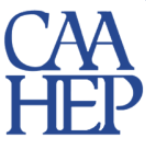Licensure Information
The Art Therapy Program is accredited by the Commission on Accreditation of Allied Health Education Programs (www.caahep.org) upon the recommendation of The Accreditation Council for Art Therapy Education. The program meets the requirements for the licensed marriage and family therapist (LMFT) and licensed professional clinical counselor (LPCC) credentials in MN. Does our program meet licensure requirements in your state? Contact the state licensure board here.
Art Therapy Annual Report
AGS Art Therapy program is accredited by the Commission on Accreditation of Allied Health Education Programs CAAHEP upon the recommendation of the Accreditation Council for Art Therapy Education (ACATE).

